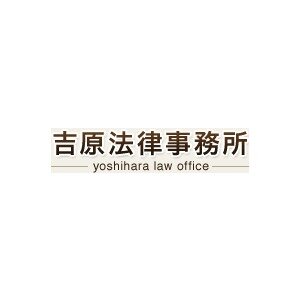Best Civil & Human Rights Lawyers in Japan
Share your needs with us, get contacted by law firms.
Free. Takes 2 min.
Or refine your search by selecting a city:
List of the best lawyers in Japan
About Civil & Human Rights Law in Japan
The enforcement and protection of Civil & Human Rights in Japan are outlined in its Constitution, which was drafted in 1947. This document emphasizes democracy, peace, and personal liberties. The key elements of civil rights include freedom of thought, expression, association, and the right to political participation. The concept of human rights extends to safeguarding individuals from discrimination and ensuring that everyone enjoys equal treatment before the law. Japan is also a signatory to numerous international human rights treaties, which play a significant role in shaping its domestic legislation.
Why You May Need a Lawyer
Individuals may require legal assistance in Civil & Human Rights for numerous reasons, including but not limited to instances of discrimination at work, violations of freedom of speech, unfair treatment by public institutions, or seeking asylum due to persecution. Legal situations involving civil liberties or human rights often require navigating complex legal systems or challenging unjust laws, which can be daunting without professional guidance. Lawyers specialized in this field can provide invaluable support by advocating for individuals' rights and ensuring fair and legal proceedings.
Local Laws Overview
Japan’s Human Rights Bureau under the Ministry of Justice plays a pivotal role in promoting and protecting human rights within the country. Key local laws include the Constitution which guarantees fundamental human rights and the Act on the Promotion of Human Rights Education and Human Rights Awareness, which aims to advance understanding and advocacy. Moreover, Japan adheres to laws against discrimination, including those addressing workplace harassment and gender equality.
Frequently Asked Questions
What are the basic civil rights guaranteed by the Japanese Constitution?
The Japanese Constitution guarantees several civil rights, including freedom of speech, assembly, and association, as well as the rights to privacy, equality, and political participation.
How does Japan address discrimination in the workplace?
The Equal Employment Opportunity Law (EEOL) and Labor Standards Law prohibit discrimination based on gender, and there are guidelines to prevent power and sexual harassment at work.
What legal avenues are available for a victim of human rights violations?
Victims can report to the Human Rights Bureau, seek assistance from the Legal Support Center, and may pursue legal action through the court system with the aid of a lawyer.
Does Japan recognize asylum seekers?
Yes, Japan recognizes asylum seekers and accords them certain rights, but the approval process can be challenging, requiring substantial evidence and legal representation.
What organizations in Japan work on human rights issues?
Numerous organizations work in this field, including the Human Rights Watch, Amnesty International Japan, and local NGOs like the Japan Civil Liberties Union.
What should one do if they face discrimination in Japan?
It’s advisable to document the incidents of discrimination, report to relevant authorities such as the Human Rights Bureau, and consult with a lawyer specialized in human rights.
Is there legal aid available for human rights cases in Japan?
The Japan Legal Support Center offers assistance, and there may be pro-bono legal services or NGOs for those who cannot afford legal fees.
What international treaties on human rights has Japan ratified?
Japan has ratified various international treaties, including the International Covenant on Civil and Political Rights, Convention on the Elimination of All Forms of Discrimination Against Women, and the Convention on the Rights of the Child.
How are hate crimes addressed in Japan?
Although there is no specific legislation for hate crimes, Japan has enacted the Hate Speech Act to limit expressions that incite discrimination.
What role do the courts play in protecting human rights in Japan?
The judiciary interprets constitutional rights and international treaties, adjudicates human rights cases, and ensures just enforcement of laws and policies.
Additional Resources
For further assistance, the following resources can be useful:
- Human Rights Bureau - Ministry of Justice: Provides information and addresses complaints related to human rights.
- Japan Federation of Bar Associations: Offers experts and legal advice on individual rights.
- Local NGOs: Such as the Japan Civil Liberties Union and other civil society organizations provide support and advocacy.
Next Steps
If you require legal assistance in Civil & Human Rights, consider the following steps:
- Identify and document any violations of your rights with as much detail as possible.
- Contact local human rights organizations or the Human Rights Bureau for initial advice and guidance.
- Consult with a legal professional or seek assistance from the Japan Legal Support Center if legal proceedings are necessary.
- Engage with support groups that can provide emotional and social assistance, ensuring comprehensive support throughout the process.
Lawzana helps you find the best lawyers and law firms in Japan through a curated and pre-screened list of qualified legal professionals. Our platform offers rankings and detailed profiles of attorneys and law firms, allowing you to compare based on practice areas, including Civil & Human Rights, experience, and client feedback.
Each profile includes a description of the firm's areas of practice, client reviews, team members and partners, year of establishment, spoken languages, office locations, contact information, social media presence, and any published articles or resources. Most firms on our platform speak English and are experienced in both local and international legal matters.
Get a quote from top-rated law firms in Japan — quickly, securely, and without unnecessary hassle.
Disclaimer:
The information provided on this page is for general informational purposes only and does not constitute legal advice. While we strive to ensure the accuracy and relevance of the content, legal information may change over time, and interpretations of the law can vary. You should always consult with a qualified legal professional for advice specific to your situation.
We disclaim all liability for actions taken or not taken based on the content of this page. If you believe any information is incorrect or outdated, please contact us, and we will review and update it where appropriate.
Browse civil & human rights law firms by service in Japan
Japan Attorneys in related practice areas.
Browse civil & human rights law firms by city in Japan
Refine your search by selecting a city.












